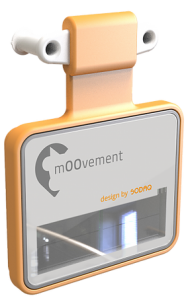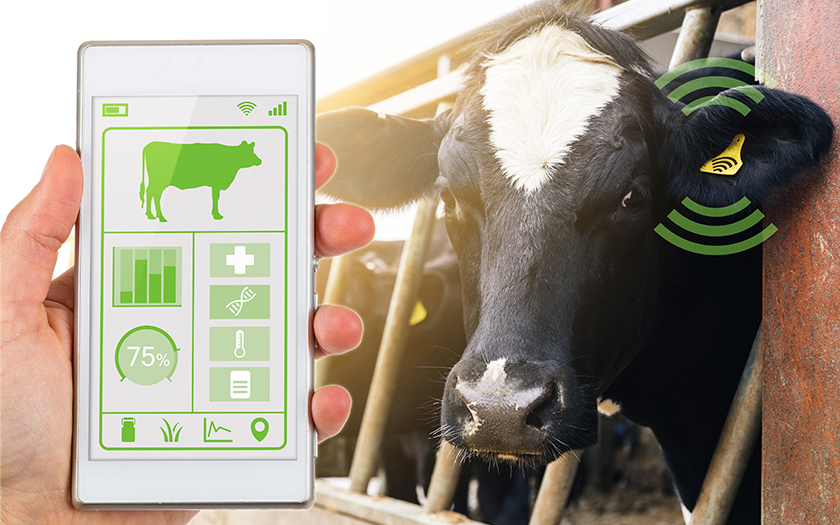Highlighting the huge application potential of the company’s advanced power management ICs (PMICs), e-peas has confirmed that its AEM10941 devices for photovoltaic energy harvesting are being incorporated into tracking equipment employed in Australian cattle ranches.

e-peas engineers worked in conjunction with the team at Dutch systems integrator SODAQ on the development and implementation of energy efficient livestock monitoring hardware for Brisbane-based client mOOvement.
Through use of mOOvement’s smart tracker, valuable data on cattle herds can be acquired concerning their position and grazing patterns, with the ability to set alarms if individual animals are not moving or fenced boundaries have been breached. Attached to one of the cattle’s ears, each tracker comprises an accelerometer, a LoRA communication module (with built-in microcontroller) and a GPS transceiver, as well as a passive NFC tag.
When the design project was embarked upon, it was clearly paramount that the size and weight of the unit had to be kept as low as possible, in order to minimize the impact on the animal. This placed severe restrictions on the surface of the solar panel that could be accommodated (with it measuring slightly less than 19mm x 43mm in total and capable of generating 0.125W). Consequently, the power harvesting system needed to be ultra-efficient. In addition, as these trackers will remain on the cattle for a period of 5 years, robustness and long-term reliability were also essential attributes.
SODAQ’s initial development work on this project started nearly two years back, with e-peas being engaged about 12 months ago. With very little power to draw upon, making full use of what was available was vital. The high energy conversion rate as well as the small footprint of the dual LDO regulated-output AEM10941 met this key criterion, as well as supporting a prolonged operational lifespan even in the uncompromising application environment of the Australian Outback, where exposure to extreme temperature conditions needed to be expected. Thousands of tracking units have already been deployed, with plans to scale further up in near future.
“For this project, there were numerous technical challenges that had to be addressed,” states Ollie Smeenk, Head of Sales & Marketing at SODAQ. “The evident power efficiency of the e-peas PMICs, alongside the strong lines of communication their staff built with us and the exceptional technical support they provided, all proved to be contributing factors that helped us to succeed.”
“In the past, the cattle trackers available to farmers needed to be periodically recharged. This was obviously inconvenient, requiring considerable investment of time and human resources. By being able to efficiently utilize the energy from sunlight such issues can be completely avoided,” adds Pieter Vogels, Chief Commercial Officer at mOOvement. “Together, SODAQ and e-peas, through their respective expertise in IoT and energy harvesting, have supplied us with a system that is not only reliable and operationally effective, but also compact and light enough to be animal friendly.”
For more information on the AEM10941 device
About SODAQ
SODAQ’s core competency lies in IoT. Creating a smarter environment that can sense what is going on and enable better decisions to be made, this Netherlands-based company specializes in scalable electronics solutions for outdoor deployment – including cattle tracking, air quality monitoring and municipal service enablement. Harnessing the power of the sun is imperative for these solutions. SODAQ has implemented projects in developing countries across the globe – from Peru to Sri Lanka. Learn more at https://sodaq.com
 Dual source harvesting
Dual source harvesting 
